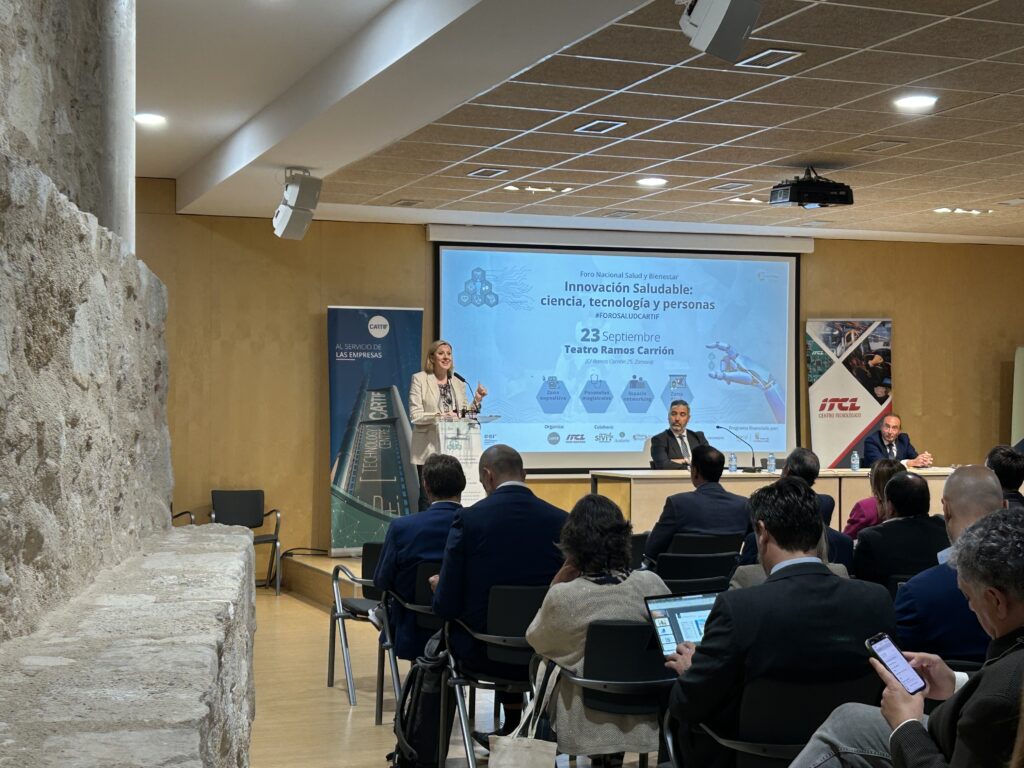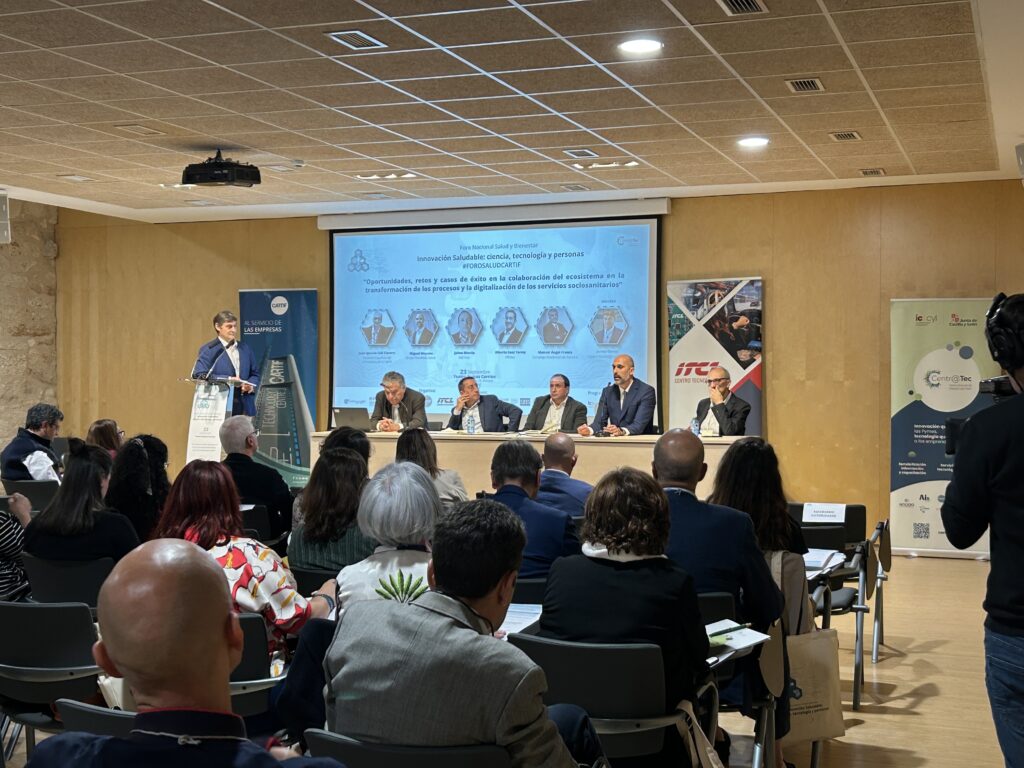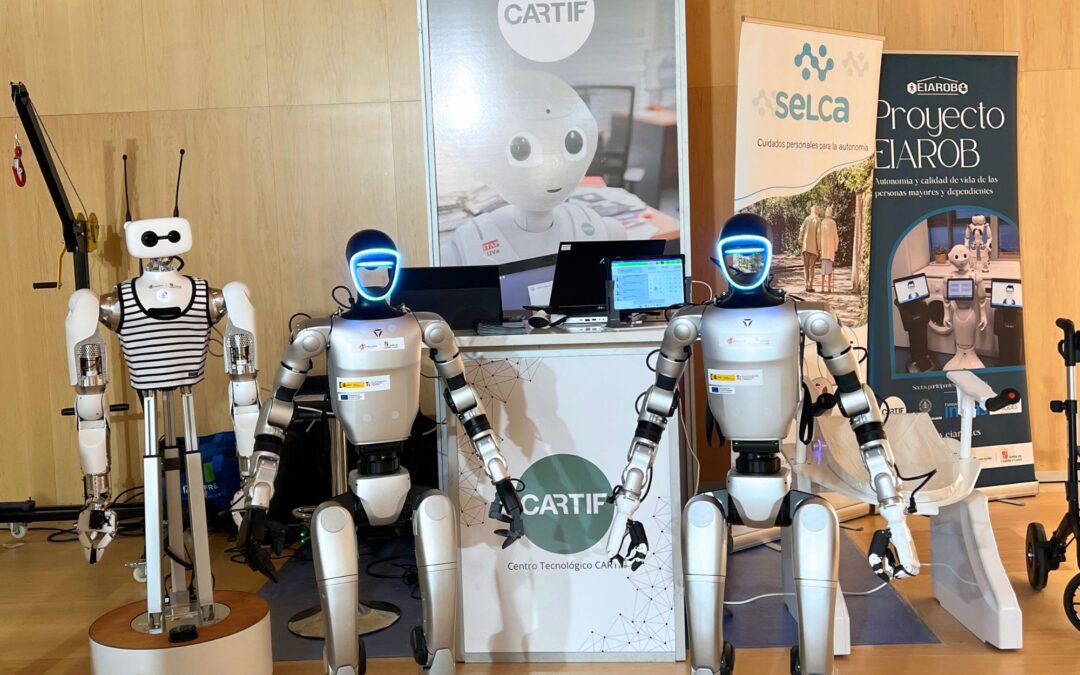On September 23, Zamora breathed innovation: researchers, doctors, technologists, companies, and institutions came together with a single goal in mind—the future of health and well-being.
The National Health and Wellbeing Forum, promoted by CARTIF together with ITCL as part of the CENTRATEC program, which was held in the city, became a space where innovation was not just a technological opportunity, but a key tool for improving people’s lives.
Technology at the service of care
The institutional opening was marked by the speech given by Isabel Blanco, Vice President of the Regional Government of Castile and León and Minister for Family and Equal Opportunities, who highlighted the importance of putting technology at the service of care. This message resonated throughout the day and set the tone for the work: innovation, yes, but always with the patient at the center.

The conversations began to flow with the first of the topics, moving from health research to the development of concrete solutions. The RIS3 strategy for Castile and León (2021-2027) recognizes health as one of its priority areas, focusing on fields with enormous potential such as personalized medicine, advanced therapies, and technological health products.
“ The objective of RIS3 is to position Castilla and Leon as a key actor facing new challenges and opportunities to improve people’s lives.“
-Beatriz Asensio, Head of the Technology Transfer Unit at the Institute for Business Competitiveness of the Regional Government of Castile and León.-
The underlying reflection was shared by all: how to translate enormous scientific potential into concrete results for patients, ensuring speed, safety, and sustainability?
Digital health: from data to decision
The digital future was also a key topic. Concepts such as artificial intelligence, big data, and telemedicine made it clear that the future is already here, and that the challenge is to learn how to use digital tools responsibly, both in prevention and in personalized care.
Ethics, training, and adaptation of healthcare systems were recurring themes in a passionate debate.
But if there was one moment when everyone seemed to be pulling in the same direction, it was when discussing public-private partnerships. Companies, startups, research centers, and government agencies agreed that the key lies in joining forces to ensure that innovations actually reach the healthcare system and the market.

“ We must commit to projects that can be implemented in real life.“
-Manuel Ángel Franco, Head of Psychiatry and Mental Health Services at the Zamora Healthcare Complex.-
“ The key is to optimize processes to make things easier for everyone, both professionals and users.“
-Alberto Saez, IT responsible of Affidea-
“ Users must always be at the center“
-Juan Ignacio Coll, Vice President of the Health Informatics Society-
In the demonstration area, that vision became tangible: a place full of technological solutions and ongoing projects that could be experienced firsthand and that seemed to open the door to new ways of caring.
And beyond the presentations and round tables, the forum also took place in the corridors: impromptu conversations during coffee and lunch breaks became genuine networking opportunities, and on social media, the hashtag #FOROSALUDCARTIF kept the debate and conversation alive throughout the day.
The Castilla y León Health Forum closed its first edition with a shared feeling: that of having lit a spark. It became clear that the region has a solid ecosystem, with the capacity to innovate and transform research into real solutions for patients.
Events like this are not only showcases for knowledge, they are also catalysts for collaboration and inspiration, reflecting the fact that innovating in health is, in reality, innovating in the way we want to live.
- Innovation in health and well-being in Castile and León: science, technology, and people at the National Forum - 6 October 2025
- Physiotherapist or robot? Both - 6 May 2016
- How a normal hospital can turn into a smart hospital? - 26 February 2016
